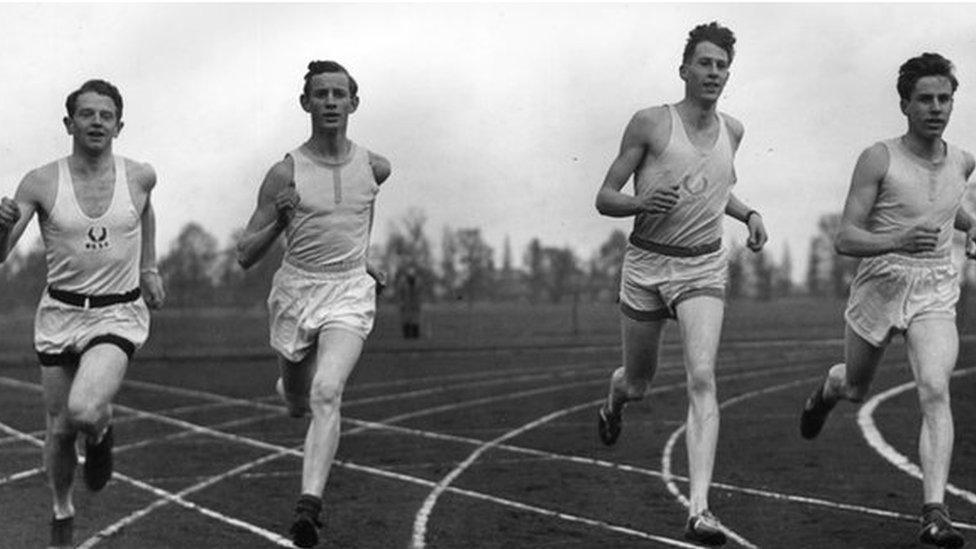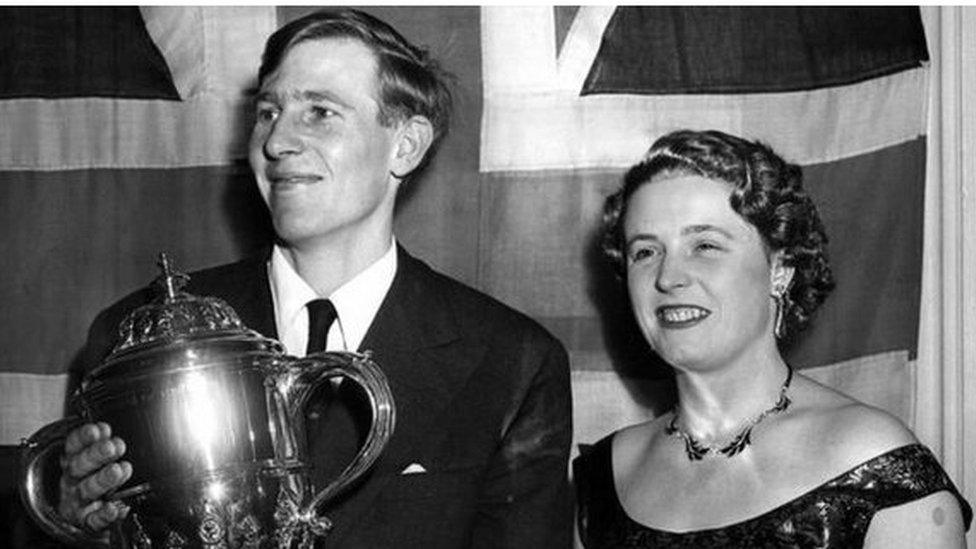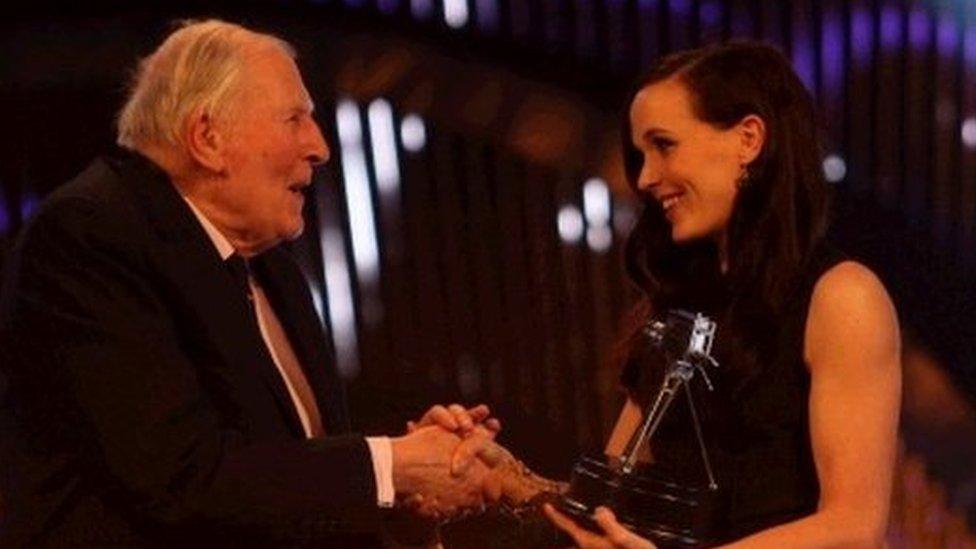Obituary: Roger Bannister
- Published
This video has been removed for rights reasons
Roger Bannister, who has died at the age of 88, was the first man to run a mile in under four minutes.
Sir Roger, who was knighted in 1975, had been suffering from Parkinson's disease since 2011.
The record time in Oxford established him as one of the great names of British athletics.
In an age of the gentleman amateur, Bannister saw his running as something to be done in his spare time.
He once wrote that the ideal athlete was one who enjoyed a few drinks and even the odd cigarette.
Roger Gilbert Bannister was born on 23 March 1929 in Harrow, Middlesex.
After leaving University College School in London, he went to Oxford to read medicine before going on to St Mary's Hospital Medical School.
Bannister used his medical knowledge to devise his own training regime and investigate the mechanical aspects of running.

Bannister (2nd right) warming up for his record-breaking run
He had taken up athletics while at Oxford but his studies meant he could snatch only about 30 minutes a day to practise his technique on the track.
Unlike the lucrative profession it has become today, athletics was always only one aspect of Bannister's student life.
"As soon as I ceased to be a student," he said, "I always knew I would stop being an athlete."
Nevertheless, after just three sessions, he was running a mile in 4:24, which was enough to see him considered as a possible for the 1948 Olympics in London.
Unfavourable weather
Four years later he was selected for the British Olympic team to compete in Helsinki.
Despite being concerned at a lack of fitness, he finished fourth in the 1500m final, setting a new British record.
By the spring of 1954, Bannister was continuing his training preparations for the Commonwealth Games, with one eye on the world record and the other on his arch-rival, Australian John Landy.

Bannister holding his BBC Sportsman of the Year trophy with Sportswoman winner Pat Smythe
Bannister took to the track at Iffley Road, Oxford, on 6 May, a day beset by unfavourable weather.
The race was almost cancelled but eventually the starting gun went off.
You may also be interested in:
Helped by his pacemakers Chris Brasher and Chris Chataway, Bannister broke the tape in a time of 3:59.4 and history was made.
When timekeeper Norris McWhirter tried to announce the time of "Three...", the rest of his words were drowned out by cheers.
Only when he read the newspapers the following day, did Bannister fully appreciate the scale of his success.
Insignificance
"It had become rather like Everest, a challenge for the human spirit," Bannister reflected on the significance of his own achievement.
His record lasted just 46 days. John Landy ran 3:57.4 in Finland to set up a much-anticipated clash between the two men in the Commonwealth Games in Vancouver.
In a race billed as The Miracle Mile, Landy led until the final bend when he made the mistake of looking back for his rival. Bannister burst through to breast the tape in 3:58.8.

Bannister presents the 2012 Sports Personality of the Year team award to Victoria Pendleton
However, the achievements on the track paled into insignificance for him when he finally fulfilled his ambition and qualified as a doctor.
"You don't have to make the rest of your life boring to be a good runner," he said.
Within 10 years, he was established in his profession as a consultant physician, going on to become a leading neurologist, and later the Master of Pembroke College, Oxford.
Although a motoring accident later caused a broken ankle that put paid to Bannister's leisure running, he forever associated himself with the sport.
He became the first chairman of the Sports Council in 1971 and, during his tenure, he led a crusade on drug-testing in athletics. He was knighted in 1975 and made a Companion of Honour in the 2017 New Year's Honours.
For Bannister, the challenge of the four-minute mile was only ever a psychological barrier, not a physical one and he always maintained that his achievements as a neurologist far outshone his time on the track.
But for most, the image of Bannister will forever be the long-limbed athlete, with his head thrown back, breaking the tape on a blustery May evening in 1954.